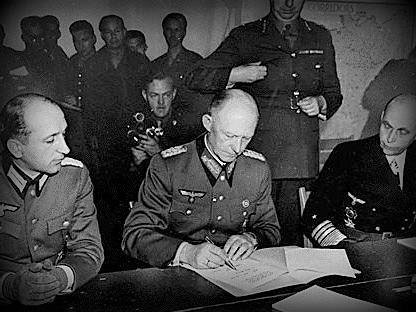
COMMENT | Ambassadors Jules-Armand & Matthias Schauer | This year again, in order to limit as much as possible the risks of spreading the Coronavirus, the French and German embassies in Uganda will not organize their traditional ceremony of May 8 for the commemoration of the end of the Second World War.
This commemoration, which reminds us every year about the end of the Second World War and the defeat of the Nazi regime, is a very important date in our contemporary history. In Europe, it signalled the end of a terrible war during which, only twenty-five years after the signing of the Treaty of Versailles that ended the First World War, the lives of millions of Europeans, but also of Africans, were once again lost.
The progress of technology and industry and the development of deadly ideologies increased the tragic consequences of this conflict tenfold. In addition to the heavy toll of six years of fierce fighting between the Allied force and Axis powers, there was the massive destruction caused by bombing to destroy the opposing production capacity and to break the resistance of the civilian population. Finally, the discovery of the horrors perpetrated by the Nazi regime in the name of its racist ideology further darkened this terrible picture. Faced with so much fear and despair, Germany and France, as well as the European countries or what was left of them, decided to choose a new path by rebuilding their relations.
May 8, 1945 marked the beginning of a radically different period. From that date on, Germany and France, and then all the European nations, decided to find alternative means to military confrontation to settle their differences, whatever their nature. From there, the first steps towards a European Union were taken. Visionary and willing men and women decided to silence the past hatred between France and Germany and to invent the terms of a peaceful and lasting commitment between our two countries, beyond political changes, to achieve a true friendship. With peace, our two nations and Europe experienced a period of unprecedented economic development, the “glorious thirties” between 1945 and 1975, which allowed European countries to rebuild and develop well beyond the reserved prospects of the immediate post-war period.
On the occasion of May 8, 2021, the enemies of yesterday and allies of today, France and Germany, wish that all remember the errors and victims of the past so that the establishment of peaceful international relations will allow nations to build a more peaceful world for present and future generations.
*********

 This article is jointly written by Your Excellency Matthias Schauer, Ambassador of Germany to Uganda (far left), and Your Excellency Jules-Armand Aniambossou, Ambassador of France to Uganda
This article is jointly written by Your Excellency Matthias Schauer, Ambassador of Germany to Uganda (far left), and Your Excellency Jules-Armand Aniambossou, Ambassador of France to Uganda
 The Independent Uganda: You get the Truth we Pay the Price
The Independent Uganda: You get the Truth we Pay the Price





